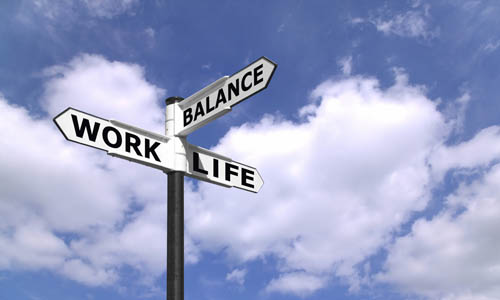A 2011 survey found that over 60 percent of childless women between the ages of 33 and 47 believed that their colleagues with children were given more schedule flexibility with employers. It is a positive development that the workplace tends to acknowledge the importance of parenting, but we must also be sure that the life choices and circumstances of other employees are not devalued. Kat Stoeffel in New York magazine questioned whether "children are the only extra-professional pursuit moral enough to justify working a flexible 40-hour week."

Further, as Tara Siegel Bernard in the New York Times suggests, it seems that men may "be penalized more severely than women, because they're viewed as feminine, deviating from their traditional role of fully committed breadwinners." One study found that men who take paternity leave are less likely to be promoted or receive raises. Do we not need to help raise families, maintain their health, volunteer, and becoming more educated as well?
It may surprise Americans to find out how work-oriented this society is compared with the rest of the world. A survey of the richest 21 nations revealed that the United States is the only one whose government does not guarantee that all workers receive a single paid vacation day or holiday. European nations routinely guarantee at least 20 days of vacation, and many have 30-35 days of combined paid vacation and holidays. Even Japan, considered the hardest-working nation in the world, guarantees its workers 10 paid vacation days annually, although surveys indicate workers actually take less paid time off than they are entitled to. The United Kingdom, from which America won its independence after the Revolution, guarantees its workers 28 paid vacation days annually. On July 4th, some American workers may wonder about the wisdom of freedom that guarantees no paid days off. On top of this, nearly all Americans who are entitled to vacation days lose whatever vacations time they have not used by December 31st. Even so, in 2011, Americans took an average of 14 days' vacation, but in 2012 they averaged 12 days of allotted vacation, and only took 10 of those days.
In addition, the United States is the only developed nation that does not require its employers to give paid sick days to its employees. As a result, about 40 million American workers have to either work sick or risk being fired, a system that leads to the possible spread of illness. This puts American workers below workers in dictatorships such as Zimbabwe and monarchies such as Saudi Arabia.
One result of these norms is that Americans tend to take shorter vacations, and less frequently. Employers should note that a well-rested and well-balanced employee is likely to be more effective on the job. Further, we owe it to all to create a society that only sees work as a part of life and not as the dominant goal in life. All should have a vocation and an avocation. We have seen the physical as well as spiritual dangers of the "supersized" lifestyle. Quality of life should be more valued than quantity in life.
Famously, the Chofetz Chaim was known to only work as long as necessary to earn the money needed for his family to meet his needs. When he earned enough to support the family, he would close the shop until the next time funds were low. Part of the choice today is on legislators to regulate the work weeks, part is on employers to create healthy policy and norms, and part is on employees who must make hard choices on how to spend their time and energies. Together we can achieve work-life balance and wofk-life integration. Employers might offer incentives to employers to continue their education, to maintain their health, and to spend more time with their families. The choices are not easy, as we all want to be professionally and financially stable, but we also cannot sacrifice our families, health, happiness, and other major life commitments. As a society, we should make the choice less difficult for individuals through lobbying employers and the government to guarantee a reduction in the conflict between work and life. We must demand a lot of our minds, bodies, and souls. To achieve our life goals, we must work hard in and out of the office. We must also rest fully (not in mindlessness but in mindfulness) to ensure that we are able to give our absolute best.
Rabbi Dr. Shmuly Yanklowitz is the Founder & President of Uri L'Tzedek, the Founder and CEO of The Shamayim V'Aretz Institute and the author of "Jewish Ethics & Social Justice: A Guide for the 21st Century." Newsweek named Rav Shmuly one of the top 50 rabbis in America."